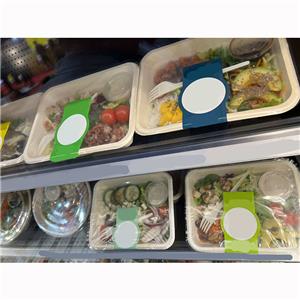Stamford Bans Single-Use Plastics in Restaurants: What Diners and Businesses Need to Know
Stamford has officially taken a bold step toward sustainability by approving a ban on single-use plastics in restaurants, a decision expected to reshape both dining habits and business operations across the city.
Mayor Caroline Simmons confirmed that she will sign the ordinance in the coming days, calling it “the first step toward making Stamford a greener and more sustainable city.”
What the Plastic Ban Means for Restaurants and Customers
The new law prohibits plastic cutlery, lids, straws, black trays, and other disposable items commonly used in food service. Only soups and liquids will temporarily remain exempt. Instead, restaurants must adopt eco-friendly packaging and biodegradable alternatives, such as compostable straws or reusable utensils provided only upon customer request.
Implementation will roll out gradually:
Stage one begins in nine months.
The full transition will take three years.
Public schools will have up to ten years to comply.
Why Stamford Is Saying Goodbye to Single-Use Plastics
Environmental experts argue that single-use plastics are among the biggest contributors to waste and pollution. Once discarded, they often end up in landfills and oceans, where they take decades to break down and ultimately turn into microplastics. These tiny particles contaminate soil, water, and even food supplies. Studies show that humans are already breathing and consuming microplastics daily.
“Plastic is everywhere – in what we touch, in what we eat, and even in our bodies,” noted Councillor Karen Camporeale, who supported the measure.
Mixed Reactions from the Restaurant Industry
While environmental advocates celebrated the vote as a milestone, many local business owners voiced concerns about costs.
“We use plastic for almost everything. Biodegradable options don’t always hold up,” said Andres Oyola, a café attendant.
Restaurant owner Anthony Nargi added: “We’re not against protecting the environment, but customers should know these changes will raise prices.”
On the other hand, some see the transition as a chance to stand out. Businesses that switch early may gain a competitive edge, especially as Stamford considers incentives for early adopters of sustainable packaging.
Penalties for Non-Compliance
The ordinance includes a warning for first-time violations and a $250 fine for each subsequent offense. Stamford’s leaders believe this approach balances accountability with flexibility, giving restaurants time to adapt while ensuring progress.
A Turning Point for Stamford and Beyond
Stamford now joins the growing list of U.S. cities taking action against plastic pollution. The ban represents both a challenge and an opportunity for the food service industry, as restaurants and consumers alike learn to embrace eco-friendly dining solutions.
“This change may not be easy,” Mayor Simmons said, “but it is necessary if we want a healthier future for our community and our planet.”




